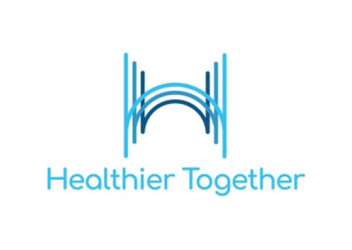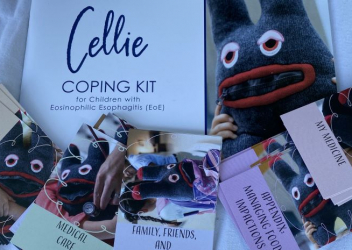Research In Action
Research In Action
Breadcrumb

The Center for Violence Prevention (CVP) at CHOP continues to be a proud part of CHOP’s Healthier Together Initiative and it’s Growing Resilience in Teens (GRIT) Program. Research shows that exposure to community violence and childhood trauma put children at an increased risk for future mental health issues. By intervening early, the goal is to break the cycle between exposure to trauma, maladaptive coping, and poor mental health outcomes. Healthier Together’s Growing Resilience in Teens (GRIT) Program works toward this goal by proactively screening, intervening, and referring youth to supportive community programs and interventions that mitigate the effects of trauma.
Two CHOP primary care centers, Karabots and Cobbs Creek, are home to the GRIT program. Youth and families receive a brief screen during their visit to identify recent trauma, loss and/or concrete needs. Upon identification of a potentially traumatic event or experience, children and families can receive a direct referral to group-based services and/or a comprehensive trauma-informed assessment. The GRIT trauma-informed assessment by CVP social workers identifies symptoms of post-traumatic stress, depression, anxiety, and suicidality in participating youth. Following the assessment, youth and families are connected with appropriate support and services (including individual outpatient mental health treatment and/or psychiatrist when appropriate) to address their needs and help foster resilience and healing. A highlight of this service is recognizing that some families need support and navigation to connect with resources due to many systemic barriers.
The GRIT Assessment allows youth and families to receive the right level of support(s) at the right time, tailored to their specific needs. Strong communication between GRIT, primary care providers and social workers ensures that all team members are aware of the services a family is receiving and that care is coordinated.
Reflecting on our Growth
There are three co-occurring epidemics currently faced by children and youth in Philadelphia: Covid-19, gun violence, and a mental health crisis. The intersection and severity of these epidemics have exacerbated pervasive psychosocial problems, and the need for GRIT programming remains. Between July 2021 and August 2022, the GRIT Assessment team completed 125 GRIT Assessments and connected youth with appropriate services to address their mental health symptoms.
Examples of partnerships to address these needs of youth in the past year include:
- The Uplift Center for Grieving Children provides support groups to youth and caregivers who have been impacted by loss, often related to Covid-19 or gun violence, or are experiencing ambiguous loss, such as having a family member incarcerated. As of June 2022, Uplift has enrolled 109 children and 76 caregivers in Grief & Loss Groups, with new groups beginning in September.
- A Healthier Together-funded partnership between CVP and Hall Mercer Community Mental Health allows youth with post-traumatic stress symptoms to be referred for trauma-focused cognitive behavioral therapy (TF-CBT) upon completion of the GRIT Assessment. This evidence-based individual intervention works to reduce post-traumatic stress symptoms for youth and their caregivers. Since this partnership started in fall 2021, 32 youth who received a GRIT Assessment were connected to Hall Mercer for individual TF-CBT. This partnership provides a streamlined approach for referrals and allows youth to receive effective trauma treatment in a timely manner.
- The Family Advocacy and Support program (FAS) provides intensive, community-based case management support to help families address their social and concrete needs. FAS wraps services around the entire family and assists families in navigating complex systems of care, including: mental health services, obtaining vital documents (birth certificates and social security cards), counseling around intimate partner violence, safe and stable housing, obtaining working papers, and supporting families with Individualized Education Plans. To date, 93 youth have been referred to FAS for case management support and assistance.
Looking Ahead
In the last year, FAS staff grew from one to three full time community-based social workers to support youth and families enrolled in FAS. The FAS team is currently recruiting for a community health worker to support the program.
The work to support youth and families in Philadelphia cannot be done alone. The Center for Violence Prevention is proud to be part of the network of agencies, programs, and advocates working together to support healing and foster resilience for Philadelphia’s children. CVP continues to seek out additional programs and services to create a strong network of providers and supports for these families.




